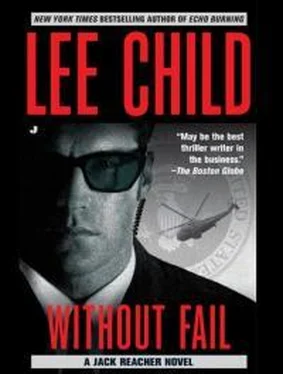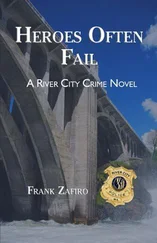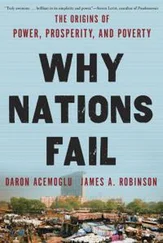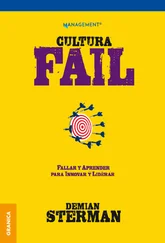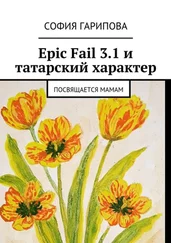Ли Чайлд - Without Fail
Здесь есть возможность читать онлайн «Ли Чайлд - Without Fail» весь текст электронной книги совершенно бесплатно (целиком полную версию без сокращений). В некоторых случаях можно слушать аудио, скачать через торрент в формате fb2 и присутствует краткое содержание. Жанр: Крутой детектив, Триллер, на английском языке. Описание произведения, (предисловие) а так же отзывы посетителей доступны на портале библиотеки ЛибКат.
- Название:Without Fail
- Автор:
- Жанр:
- Год:неизвестен
- ISBN:нет данных
- Рейтинг книги:3 / 5. Голосов: 1
-
Избранное:Добавить в избранное
- Отзывы:
-
Ваша оценка:
- 60
- 1
- 2
- 3
- 4
- 5
Without Fail: краткое содержание, описание и аннотация
Предлагаем к чтению аннотацию, описание, краткое содержание или предисловие (зависит от того, что написал сам автор книги «Without Fail»). Если вы не нашли необходимую информацию о книге — напишите в комментариях, мы постараемся отыскать её.
The secretive, closed organization that invites Jack Reacher in is the Secret Service, the organization that protects the Presidency. Someone who was once close to Reacher’s brother, needs help in her new job. Her new job? Saving the Vice President of the United States from being assassinated.
Without Fail — читать онлайн бесплатно полную книгу (весь текст) целиком
Ниже представлен текст книги, разбитый по страницам. Система сохранения места последней прочитанной страницы, позволяет с удобством читать онлайн бесплатно книгу «Without Fail», без необходимости каждый раз заново искать на чём Вы остановились. Поставьте закладку, и сможете в любой момент перейти на страницу, на которой закончили чтение.
Интервал:
Закладка:
“Worrying about DNA on envelopes sounds like insiders,” Neagley said. “But one thing bothers me. If they’re familiar with your procedures, then they didn’t interpret the Bismarck situation very well. They expected the cops would move toward the decoy rifle and Armstrong would move toward the cars, thereby traversing their field of fire. But that didn’t happen. Armstrong waited in the blind spot and the cars came to him.”
Froelich shook her head.
“No, I’m afraid their interpretation was correct,” she said. “Normally Armstrong would have been well out in the middle of the field, letting people get a good look at him. Right there in the center of things. We don’t usually make them skulk around the edges. It was a last-minute change to keep him near the church. Based on Reacher’s input. And normally there’s absolutely no way I would allow a rear-wheel-drive limo on the grass. Too easy to bog down and get stuck. That’s an article of faith. But I knew the ground was dry and hard. It was practically frozen. So I improvised. That maneuver would have struck an insider as completely off the wall. It would have been the very last thing they were expecting. They would have been totally surprised by it.”
Silence for a beat.
“Then Bannon’s theory is perfectly plausible,” Neagley said. “I’m very sorry.”
Stuyvesant nodded, slowly. Strike two .
“Reacher?” he said.
“Can’t argue with a word of it.”
Strike three . Stuyvesant’s head dropped, like his last hope was gone.
“But I don’t believe it,” Reacher said.
Stuyvesant’s head came up again.
“I’m glad they’re pursuing it,” Reacher said. “Because it needs to be pursued, I guess. We need to eliminate all possibilities. And they’ll go at it like crazy. If they’re right, they’ll take care of it for us, that’s for sure. So it’s one less thing for us to worry about. But I’m pretty sure they’re wasting their time.”
“Why?” Froelich asked.
“Because I’m pretty sure neither of these guys ever worked here.”
“So who are they?”
“I think they’re both outsiders. I think they’re between two and ten years older than Armstrong himself, both of them brought up and educated in remote rural areas where the schools were decent but the taxes were low.”
“What?”
“Think of everything we know. Think of everything we’ve seen. Then think of the very smallest part of it. The very tiniest component.”
“Tell us,” Froelich said.
Stuyvesant checked his watch again. Shook his head.
“Not now,” he said. “We need to move. You can tell us later. But you’re sure?”
“They’re both outsiders,” Reacher said. “Guaranteed. It’s in the Constitution.”
13
Every city has a cusp, where the good part of town turns bad. Washington D.C. was no different. The border between desirable and undesirable ran in a ragged irregular loop, bulging outward here and there to accommodate reclaimed blocks, swooping inward in other areas to claim inroads of its own. It was pierced in some places by gentrified corridors. Elsewhere it worked gradually, shading imperceptibly over hundreds of yards down streets where you could buy thirty different blends of tea at one end and cash checks at the other for thirty percent of the proceeds.
The shelter selected for Armstrong’s appearance was halfway into the no-man’s-land north of Union Station. To the east were train tracks and switching yards. To the west was a highway running underground in a tunnel. All around were decayed buildings. Some of them were warehouses and some of them were apartments. Some of them were abandoned, some of them were not. The shelter itself was exactly what Froelich had described. It was a long low one-story building made of brick. It had large metal-framed windows evenly spaced in the walls. It had a yard next to it twice its own size. The yard was closed in on three sides by high brick walls. It was impossible to decipher the building’s original purpose. Maybe it had been a stable, back when Union Station’s freight had been hauled away by horses. Maybe later it was updated with new windows and used as a trucking depot after the horses faded away. Maybe it had served time as an office. It was impossible to tell.
It housed fifty homeless people every night. They were woken early every morning and given breakfast and turned out on the streets. Then the fifty cots were stacked and stored and the floor was washed and the air was misted with disinfectant. Metal tables and chairs were carried in and placed where the beds had been. Lunch was available every day, and dinner, and then the reverse conversion to a dormitory took place at nine every evening.
But this day was different. Thanksgiving Day was always different, and this year it was more different than usual. Wake-up call happened a little earlier and breakfast was served a little faster. The overnighters were shown the door a full half hour before normal, which was a double blow to them because cities are notoriously quiet on Thanksgiving Day and panhandling receipts are dismal. The floor was washed more thoroughly than usual and more disinfectant was sprayed into the air. The tables were positioned more exactly, the chairs were lined up more precisely, more volunteers were on hand, and all of them were wearing fresh white sweatshirts with the benefactor’s name brightly printed in red.
The first Secret Service agents to arrive were the line-of-sight team. They had a large-scale city surveyor’s map and a telescopic sight removed from a sniper rifle. One agent walked through every step that Armstrong was scheduled to take. Every separate pace he would stop and turn around and squint through the scope and call out every window and every rooftop he could see. Because if he could see a rooftop or a window, a potential marksman on that rooftop or in that window could see him. The agent with the map would identify the building concerned and check the scale and calculate the range. Anything under seven hundred feet he marked in black.
But it was a good location. The only available sniper nests were on the roofs of the abandoned five-story warehouses opposite. The guy with the map finished up with a straight line of just five black crosses, nothing more. He wrote checked with scope, clear daylight, 0845 hrs, all suspect locations recorded across the bottom of the map and signed his name and added the date. The agent with the scope countersigned and the map was rolled and stored in the back of a department Suburban, awaiting Froelich’s arrival.
Next on scene was a convoy of police vans with five separate canine units in them. One unit cleared the shelter. Two more entered the warehouses. The last two were explosives hunters who checked the surrounding streets in all directions on a four-hundred-yard radius. Beyond four hundred yards, the maze of streets meant there were too many potential access routes to check, and therefore too many to bomb with any realistic chance of success. As soon as a building or a street was pronounced safe a D.C. patrolman took up station on foot. The sky was still clear and the sun was still out. It gave an illusion of warmth. It kept grousing to a minimum.
By nine thirty the shelter was the epicenter of a quarter of a square mile of secure territory. D.C. cops held the perimeter on foot and in cars and there were better than fifty more loose in the interior. They made up the majority of the local population. The city was still quiet. Some of the shelter inhabitants were hanging around. There was nowhere productive to go, and they knew from experience that to be early in the lunch line was better than late. Politicians didn’t understand portion control, and pickings could be getting slim after the first thirty minutes.
Читать дальшеИнтервал:
Закладка:
Похожие книги на «Without Fail»
Представляем Вашему вниманию похожие книги на «Without Fail» списком для выбора. Мы отобрали схожую по названию и смыслу литературу в надежде предоставить читателям больше вариантов отыскать новые, интересные, ещё непрочитанные произведения.
Обсуждение, отзывы о книге «Without Fail» и просто собственные мнения читателей. Оставьте ваши комментарии, напишите, что Вы думаете о произведении, его смысле или главных героях. Укажите что конкретно понравилось, а что нет, и почему Вы так считаете.
